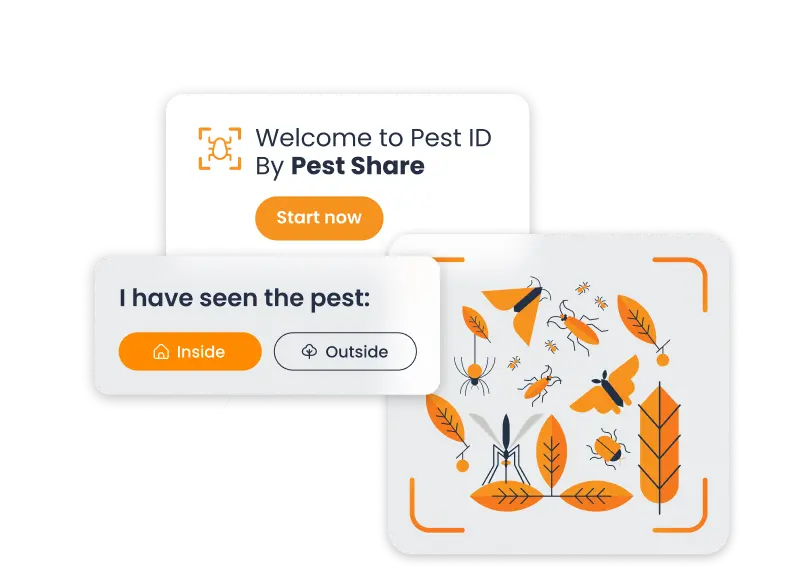The pest control industry is buzzing with opportunities, but cracking the code to effective sales is crucial for any service provider looking to thrive. Selling pest control services isn’t just about convincing homeowners to sign a contract; it’s about solving problems, building trust, and ensuring the safety and comfort of your customers.
Whether you’re a seasoned professional or new to the industry, understanding the unique aspects of this market can set you up for success.
Understanding the Pest Control Market
Before diving into selling techniques, it’s important to grasp the landscape of the pest control market. This industry caters to a diverse clientele, ranging from residential to commercial properties, each with distinct needs and challenges. The demand for pest control services often spikes due to seasonal changes or in response to public health concerns, which can influence customer urgency and openness to receiving services.
Customers typically seek pest control services out of necessity rather than desire, driven by issues that range from minor annoyances like ants in the kitchen to significant threats like termite damage. Understanding these pain points is key to addressing your customers’ concerns effectively. It’s also helpful to stay informed about local and regional trends in pest activity since these can affect customer experiences and expectations. Being knowledgeable about what specific pests are problematic in your area and at what times of the year helps tailor your approach to meet your customers’ immediate needs.

Fast Fixes. Happy Residents.
How to Sell Pest Control?
When it comes to selling pest control, your approach should be as personalized as the service you offer. Start by crafting a sales pitch that not only addresses the common concerns of potential customers but also highlights the unique benefits of your services. Emphasize aspects like the safety of your treatments, the qualifications of your technicians, and the long-term benefits of opting for professional pest control over DIY methods.
Education is a powerful tool in pest control sales. Many customers may not understand the full extent of pest-related risks, such as health hazards or property damage. Use your interactions to educate them about the importance of timely and professional pest intervention. Explain the specifics of how your services can mitigate these risks, using simple, clear language and possibly visual aids or digital apps to help illustrate points like pest breeding cycles or the typical progression of an infestation.
Selling Pest Control Door-to-Door
Door-to-door sales can be particularly effective in the pest control industry because it allows for immediate, personalized interaction. This method lets you demonstrate your knowledge and reliability face-to-face, which can quickly build trust. When you knock on someone’s door, be respectful and aware of their time. Introduce yourself and your company clearly, and be ready to succinctly explain the value of your services.
Preparation is key—know the common pest issues in the neighborhood and have ready examples of how your services have successfully resolved similar problems.
Listen carefully to potential customers’ concerns and respond with tailored advice, making it clear how your services can solve their specific issues. Also, be ready to handle objections gracefully. Many homeowners might initially hesitate to commit to a service, so having a calm, informative response can help you overcome their reservations. For example, if a homeowner is worried about the chemicals used in treatments, you could explain the safety measures and eco-friendly options available.
Digital Marketing Strategies for Pest Control Sales
In today’s digital world, having a strong online presence is key for any pest control business looking to grow. Start by ensuring your website is user-friendly, informative, and optimized for search engines. This means using keywords that potential customers might type into Google, like “pest control services near me” or “how to get rid of termites.” Also, make sure your site is mobile-friendly since many people will be searching from their phones.
Social media is another powerful tool. Platforms like Facebook, Instagram, and even LinkedIn can help you connect with your community. Share tips on preventing pest problems, special offers, and customer testimonials. These posts not only keep your audience engaged but also help establish your reputation as a trusted expert. Additionally, consider using targeted ads on these platforms to reach new customers in your area who may not yet know about your services.
Email marketing can also be very effective. Collect email addresses from your website, at events, or during service calls with permission. Send out regular newsletters with pest control tips, special promotions, and updates about your business. Personalize these emails as much as possible to keep your messages relevant to what your customers need or want.
How to Sell Pest Control Services Over the Phone
Selling pest control services over the phone requires a mix of patience and persuasion. When you call a potential customer, introduce yourself and your company right away. Be clear and concise about why you’re calling without sounding too salesy. For example, you might say, “I’m calling because many homeowners in your area have been experiencing issues with ants this season, and I wanted to share some information about how our services can help.”

Once you’ve made your introduction, ask open-ended questions to engage the customer and understand their specific needs. This can be something like, “Have you noticed any signs of pests in or around your home lately?” Based on their answers, tailor your pitch to address their concerns. Highlight the benefits of your services, such as the safety of your treatments, the convenience of not having to deal with pests yourself, and the peace of mind that comes with a professional solution.
Remember, a phone call is also a great opportunity to educate potential customers. Many people might not know about the diseases pests can carry or the structural damage they can cause. By providing valuable information, you’re not only helping them understand the importance of pest control but also positioning yourself as an expert they can trust.
Networking and Building Relationships in Pest Control
Networking is a vital part of growing any business, including pest control. Attend local community events, trade shows, and business networking meetings. These are great opportunities to meet potential customers and other business owners who might refer you to others. Always have your business card handy and be ready to explain what makes your pest control services stand out.
Building relationships with other local businesses can also be beneficial. For example, you could partner with local landscaping companies or hardware stores. They can refer clients to you when they come across pest-related issues, and you can do the same for them. This creates a mutually beneficial relationship that helps both parties grow.
Don’t forget about your existing customers either. They can be your biggest advocates. Offer incentives for referrals, such as discounts on future services. Keep in touch with them regularly to remind them of your services and encourage them to recommend you to friends and family. Happy customers are often happy to spread the word if they’re satisfied with your services.
Upselling and Cross-Selling Pest Control Services
Once you have a customer, there are often opportunities to offer additional services that they might not have considered initially. This is where upselling and cross-selling come into play. For instance, if a customer calls about a rodent problem, you might also suggest sealing potential entry points as an additional service to prevent future issues.
When you suggest additional services, make sure they are genuinely beneficial to the customer. Explain how each service can enhance their pest control plan and why it’s a good value. For example, after treating a home for insects, you might recommend a quarterly maintenance plan to keep the home pest-free year-round. Always be clear about the benefits and costs, and why you believe it’s a good fit for their specific situation.
Pest Control Sales Training and Development
A well-trained sales team is the backbone of any successful pest control business. Investing in regular training ensures that your team is up to date with the latest pest control technologies, products, and compliance regulations. Effective training also covers the best sales techniques and customer service skills that are crucial for closing deals and ensuring customer satisfaction.
Start with a comprehensive onboarding program for new hires, and don’t stop there. Offer ongoing training sessions that cover new service offerings, changes in pest behavior with the seasons, and refreshers on the company’s sales protocols and values. Role-playing scenarios can be particularly effective, allowing your team to practice and refine their approach in a low-stress environment before they’re in front of potential customers.
Overcoming Common Sales Objections in Pest Control
Handling objections is a part of any sales job, but in pest control, these can be quite specific. Common objections might include concerns over the safety of pest treatments, the cost of services, or skepticism about the effectiveness of the treatments. Prepare your team to address these confidently and competently.
Equip them with factual information, such as data on the safety and efficacy of your methods, and testimonials or case studies from satisfied customers. Training should also teach salespeople to listen carefully to the concerns of potential customers and respond with empathetic and targeted information that addresses these concerns directly.
Closing Techniques for Pest Control Sales
Closing the sale is crucial, but it’s often the most challenging part of the sales process. Teach your team various closing techniques that can help them seal the deal effectively. These might include the assumptive close, where the salesperson confidently moves forward with scheduling the service, assuming that the customer has decided to buy. Or the urgency close, highlighting any limited-time promotions or the immediate benefits of starting the treatment due to seasonal pest activity.
Always remind your team that following up is key. Sometimes, a customer won’t say yes right away. A follow-up call or email can give them the little nudge they need, showing that you care about their business and are attentive to their needs.





